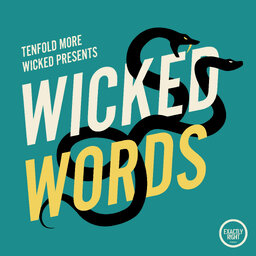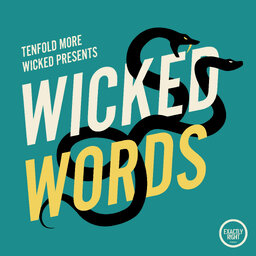Eugene Burt is a family man, the father of two little girls and the husband of a lovely woman, Anna Powers. But Burt has a past peppered with violence, some that he caused, some that he witnessed when, as a teen, his father took him to crime scenes. Would his past affect his future actions?
Written, researched, and hosted by Kate Winkler Dawson/producers Jason Wehling, Alexis Amorosi, and Natalie Rinn/sound designer Eric Friend/composer Curtis Heath
Support this podcast by shopping our latest sponsor deals and promotions at this link: https://bit.ly/4dsqzI1
Buy my books: katewinklerdawson.com
If you have suggestions for historical crimes that could use some attention, particularly in your own family, email info@tenfoldmorewicked.com
Follow me on social: @tenfoldmore (Twitter) / @tenfoldmorewicked (Facebook and Instagram)
2023 All Rights Reserved
 Wicked Words - A True Crime Talk Show with Kate Winkler Dawson
Wicked Words - A True Crime Talk Show with Kate Winkler Dawson


